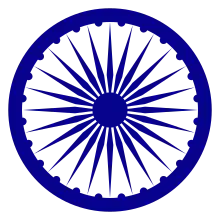 | |
| Agency overview | |
|---|---|
| Formed | 2011 |
| Dissolved | May 2019[1] |
| Jurisdiction | Government of India |
| Website | www |
| This article is part of a series on the |
| Politics of India |
|---|
 |
|
|
The Ministry of Drinking Water and Sanitation was a ministry of the Government of India formed in 2011. From May 2019, the ministry has been merged with the Ministry of Jal Shakti.[1]
In 1999, the Department of Drinking Water Supply (DDWS) was formed under Ministry of Rural Development, for focused attention on drinking water and sanitation. Later it was renamed as Department of Drinking Water and Sanitation in 2010. In 2011, it was conferred the Ministry status, keeping in view the extreme importance given to the sector by the United Progressive Alliance government. The Ministry of Drinking Water and Sanitation was the nodal department for the overall policy, planning, funding and coordination of programmes of drinking water and sanitation in the country.
Responsibilities
The ministry was responsible for the implementation of Swachh Bharat Abhiyan in rural India. It got 8 million toilets constructed surpassing the target of 6 million toilets for the year 2015–16.[2]
Notable decisions
The Ministry has requested various governmental departments to avoid the usage of plastic bottles to provide drinking water during governmental meetings etc., and instead, to make arrangements for providing drinking water that do not result in the generation of plastic waste.[3][4][5]
Cabinet Ministers
- Note:
- MoS, I/C – Minister of State with Independent Charge
- † Died in office
| No. | Portrait | Minister (Birth-Death) |
Term of office | Political party | Ministry | Prime Minister | |||
|---|---|---|---|---|---|---|---|---|---|
| From | To | Period | |||||||
| 1 |  |
Gurudas Kamat (1954–2018) MP for Mumbai North West (MoS, I/C) |
12 July 2011 |
13 July 2011 |
1 day | Indian National Congress | Manmohan II | Manmohan Singh | |
| 2 |  |
Jairam Ramesh (born 1954) MP for Andhra Pradesh (Rajya Sabha) |
13 July 2011 |
28 October 2012 |
1 year, 107 days | ||||
| 3 | .jpg.webp) |
Bharatsinh Solanki (born 1953) MP for Anand (MoS, I/C) |
28 October 2012 |
26 May 2014 |
1 year, 210 days | ||||
| 4 |  |
Gopinath Munde (1949–2014) MP for Beed |
27 May 2014 |
3 June 2014[†] |
7 days | Bharatiya Janata Party | Modi I | Narendra Modi | |
| 5 | .jpg.webp) |
Nitin Gadkari (born 1957) MP for Nagpur |
4 June 2014 |
9 November 2014 |
158 days | ||||
| 6 | .jpg.webp) |
Birender Singh (born 1946) MP for Haryana (Rajya Sabha) |
9 November 2014 |
5 July 2016 |
1 year, 239 days | ||||
| 7 | -_2017%252C_in_New_Delhi_(cropped).jpg.webp) |
Narendra Singh Tomar (born 1957) MP for Gwalior |
5 July 2016 |
3 September 2017 |
1 year, 60 days | ||||
| 8 |  |
Uma Bharti (born 1959) MP for Jhansi |
3 September 2017 |
30 May 2019 |
1 year, 269 days | ||||
| Ministry merged with Ministry of Water Resources, River Development and Ganga Rejuvenation to form Ministry of Jal Shakti | |||||||||
Ministers of State
| No. | Portrait | Minister (Birth-Death) |
Term of office | Political party | Ministry | Prime Minister | |||
|---|---|---|---|---|---|---|---|---|---|
| From | To | Period | |||||||
| 1 |  |
Upendra Kushwaha (born 1960) MP for Karakat |
26 May 2014 |
9 November 2014 |
167 days | Rashtriya Lok Samta Party | Modi I | Narendra Modi | |
| 2 | .jpg.webp) |
Ram Kripal Yadav (born 1957) MP for Pataliputra |
9 November 2014 |
5 July 2016 |
1 year, 239 days | Bharatiya Janata Party | |||
| 3 | .jpg.webp) |
Ramesh Jigajinagi (born 1952) MP for Bijapur |
5 July 2016 |
30 May 2019 |
2 years, 329 days | ||||
| 4 |  |
S. S. Ahluwalia (born 1951) MP for Darjeeling |
3 September 2017 |
14 May 2018 |
253 days | ||||
| Ministry merged with Ministry of Water Resources, River Development and Ganga Rejuvenation to form Ministry of Jal Shakti | |||||||||
References
- 1 2 "Govt forms 'Jal Shakti' Ministry by merging Water Resources and Drinking Water Ministries". Business Standard. 31 May 2019. Retrieved 10 July 2019.
- ↑ "Swachchh Mission Gallops in Villages". Dailypioneer.com. Retrieved 2 September 2016.
- ↑ "Circular Waste Bottled" (PDF). himachal.nic. Retrieved 2 September 2016.
- ↑ "Plastic Bottles" (PDF). nbsslup.in. Retrieved 2 September 2016.
- ↑ "Avoiding use of bottled water during meetings" (PDF). aghp.gov. Retrieved 2 September 2016.
External links


